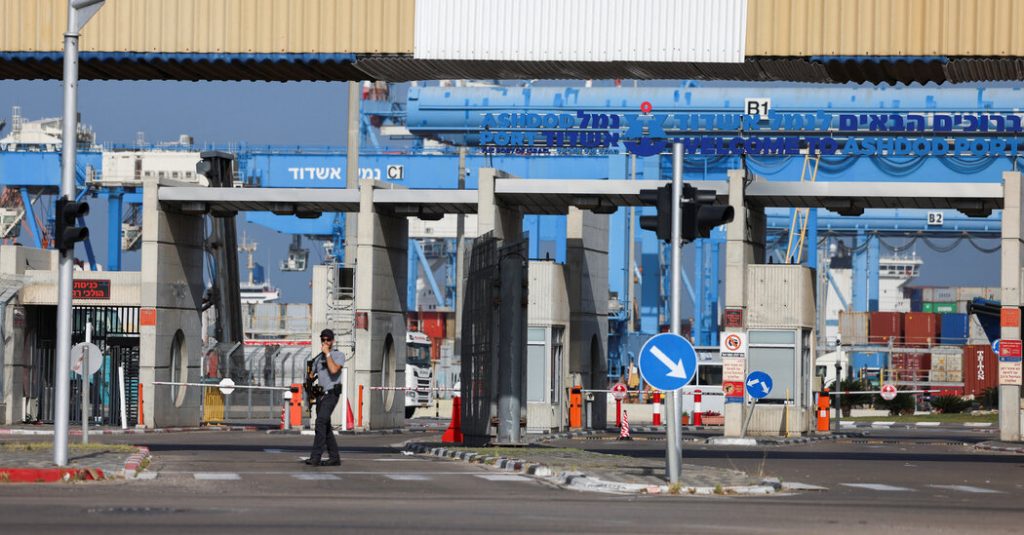Secretary of State Antony J. Blinken emphasized the importance of seeing tangible results following Israel’s decision to open up new routes for aid to flow into Gaza. This move came as a response to pressure from the United States, with President Biden making it clear that future support for Israel depended on its actions to alleviate the humanitarian crisis in the area. Blinken called Israel’s decision to establish new aid routes a positive development, but stressed that actual results, particularly in terms of the number of trucks delivering aid, would be the true test of Israel’s commitment.
President Biden’s call with Prime Minister Benjamin Netanyahu highlighted the urgency of the situation in Gaza, where a famine is looming and there have been reports of a high civilian death toll. In response to Biden’s concerns, Israel announced additional aid routes through the port of Ashdod and the Erez crossing. However, the specifics of when these new routes would open and how much aid they would allow through remained unclear. Aid officials cautiously welcomed the news, emphasizing the need to see how and when these measures would be implemented.
The World Food Program and the U.N. expressed optimism about the news of additional aid routes into Gaza, but stressed the importance of seeing concrete action. The World Food Program indicated their intention to work with Israeli authorities to swiftly capitalize on any opportunities to provide aid to those in need in Gaza. Germany’s foreign minister also urged Israel to act quickly, echoing calls from humanitarian organizations to end hunger in Gaza urgently.
The limited aid entering Gaza has been a point of contention during the conflict, with Israel restricting access to just two border crossings in the south of the enclave. Most aid passes through warehouses in Egypt near El Arish, with trucks undergoing security checks on the Egyptian side in Rafah. Aid agencies have encountered numerous challenges in delivering aid, from inspections at the border crossings to violence during distributions within Gaza. Israeli checks on goods aim to prevent items from falling into the hands of Hamas, causing delays that have been a source of frustration for humanitarian groups.
Secretary Blinken highlighted the need to address bottlenecks and delays at crossings, indicating that the United States would be monitoring the situation closely. The most severe shortages have been reported in northern Gaza, where aid groups have struggled to deliver supplies due to Israeli restrictions and lawlessness in the area. Urgent efforts are required to prevent further suffering in Gaza, especially among children and infants at risk of malnutrition. The international community is closely watching developments in Gaza and pressing for swift action to alleviate the humanitarian crisis.


